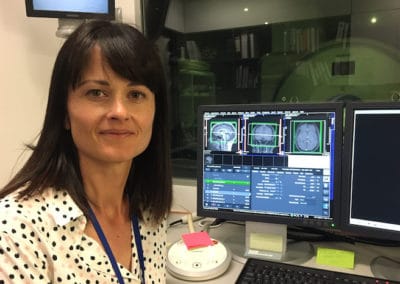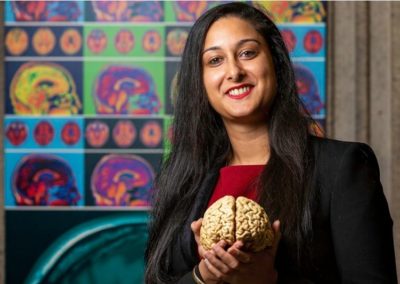Brain Research New Zealand and the Brain Health Research Centre at the University of Otago have awarded funding to a research project investigating the effects of COVID-19 on brain cells.
Since the appearance of the first case of COVID-19, a range of symptoms going beyond the effects on the respiratory system have been reported – including neurological complications, such as headaches, confusion, dizziness, and an increased risk of stroke.
To learn more about these symptoms and the effects of the virus on the nervous system, a group of researchers from the University of Otago are conducting a study to look at what happens to the brain cells that are infected with SARS-CoV-2, the virus that causes COVID-19.
BRNZ members Dr Indranil Basak and Dr Lucia Schweitzer from the Department of Biochemistry have previously established a process to grow neurons in the lab from induced pluripotent stem cells. In the laboratory of collaborator Prof Miguel Quiñones-Mateu (Department of Microbiology and Immunology) these cells will then be infected with strains of SARS-CoV-2. This will allow the research team to study how the toxicity of the virus affects the proteins and cellular mechanisms required to maintain a healthy brain cell.
“Our research will reveal whether SARS-CoV-2 causes morphological and physiological changes in neurons, which could explain the neurological symptoms in several COVID-19 patients,”Dr Basak and Dr Schweitzer explain.
BRNZ Co-Director Prof Cliff Abraham says, “We are delighted to partner with the BHRC to co-fund this important piece of Covid-19 research, thereby joining the international effort to understand and attack the virus. This initial project, led by some of our best young researchers, is a novel and exciting approach to understanding how the virus infects human nerve cells, something we still understand very little about.”



